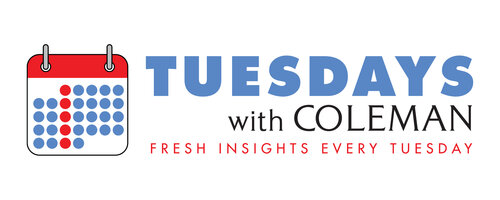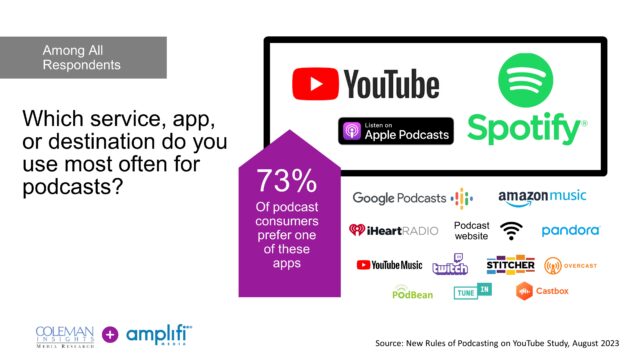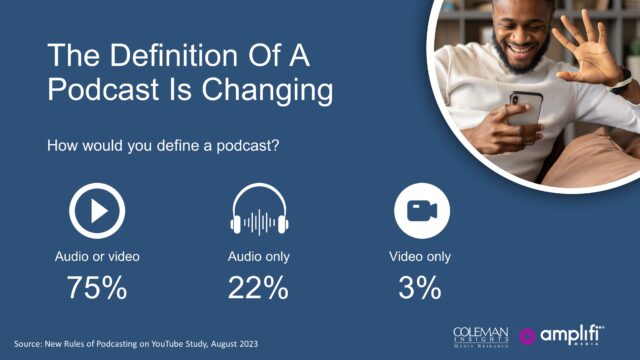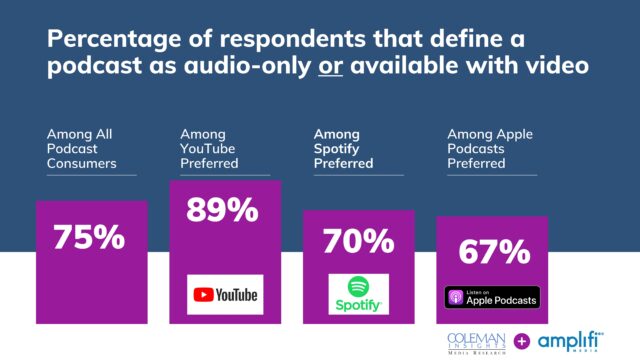
Imagine, for a moment, that you’ve got a product to promote. There are many places that offer the product you’re promoting, and the great thing is, it’s not like a grocery store that charges you for shelf space. You can put your product in any of these places you’d like, and it doesn’t cost you a thing. There are clear, consistent data that demonstrates which of these places that offer products like yours have the most customers.
If you offered this product, and you had the chance to put your product at the place that boasts the largest number of people interested in your product, would you put it there? Well, a podcast is the product, YouTube is the place, and thousands of podcasters are either publishing their shows there minimally or not at all.
How can this be?
We deployed a new research study, “The New Rules of Podcasting on YouTube,” conducted in conjunction with Amplifi Media, in which we surveyed 1,000 15- to 64-year-old podcast consumers in the United States. We learn that even though there is no shortage of podcast apps, 73% of podcast consumers prefer one of only three: YouTube, Spotify, or Apple Podcasts. YouTube is the most used app for podcasts (used by 60% of podcast consumers, compared to 53% for Spotify and 30% for Apple).

So, why isn’t podcasting on YouTube a no-brainer?
Different podcasters have different explanations, many of which are perfectly valid. And frankly, not all podcasts should be on YouTube, due to factors that may include type and category. A common concern is the RSS feed problem. I can use a hosting platform like Blubrry or Libsyn to automatically send my podcast by RSS feed to most major podcast apps. I can see analytics via the hosting platform. It seamlessly grabs my cover art and show notes, and uploads my episode.
But not to YouTube.
Reports say YouTube is running an RSS pilot, but it only ingests the audio, doesn’t allow for analytics, and must not contain any ads. YouTube is a monster, but it operates very much in its own podcast ecosystem.
There are some podcasters that believe a podcast is “audio-only” and that if it has a video, it’s not a podcast. So, we asked that question in our study to the robust sample of consumers. “How would you define a podcast?” The answer is clear: 75% of podcast consumers think a podcast should be defined as audio or video.

And if you think YouTube users drive that number, consider that more than two-thirds of those who prefer Spotify and Apple Podcasts feel the same way.

We’ve heard from many podcasters that think YouTube consumers just don’t watch or listen to podcasts as often as on other platforms.
Well…we’ve got data that lays that theory to rest.
Do people think YouTube is hard to use? Why do they choose it instead of other platforms? What about YouTube Music, which YouTube is pushing users to for podcasts? And how big is YouTube Shorts?
We had a lot of questions about YouTube, now we have answers, and we’ll share them with you with one goal in mind. We’ll show you an unbiased view of YouTube’s role in podcasting from the consumer’s perspective, to help you better understand how (and if!) your podcast should be there and how to use it to your advantage.
I’ll present the findings from “The New Rules of Podcasting on YouTube” this Thursday, August 24th at 8:30AM MT along with Steve Goldstein from Amplifi Media at Podcast Movement in Denver. Watch the Tuesdays With Coleman blog next week, when I’ll reveal more findings and a link to an upcoming webinar.
Finally, our thanks go out to Locked On Podcast Network for sponsoring the study. The locally focused sports network has more than dipped its foot in the YouTube pool and was just as curious as us as to what the findings would show.
Much more to come!

Thanks so much for this, as I’ve been pointing out to my students for some time that the studies and rankers re: podcasts often don’t seem to deal with the perception of “what’s a podcast,” especially for the Gen-Zers I’m teaching.
You’re quite welcome, Steve. We were so curious about this too. Thanks for sharing!
Great piece, Jay. Thanks!
My pleasure Mike, thanks for reading and sharing!